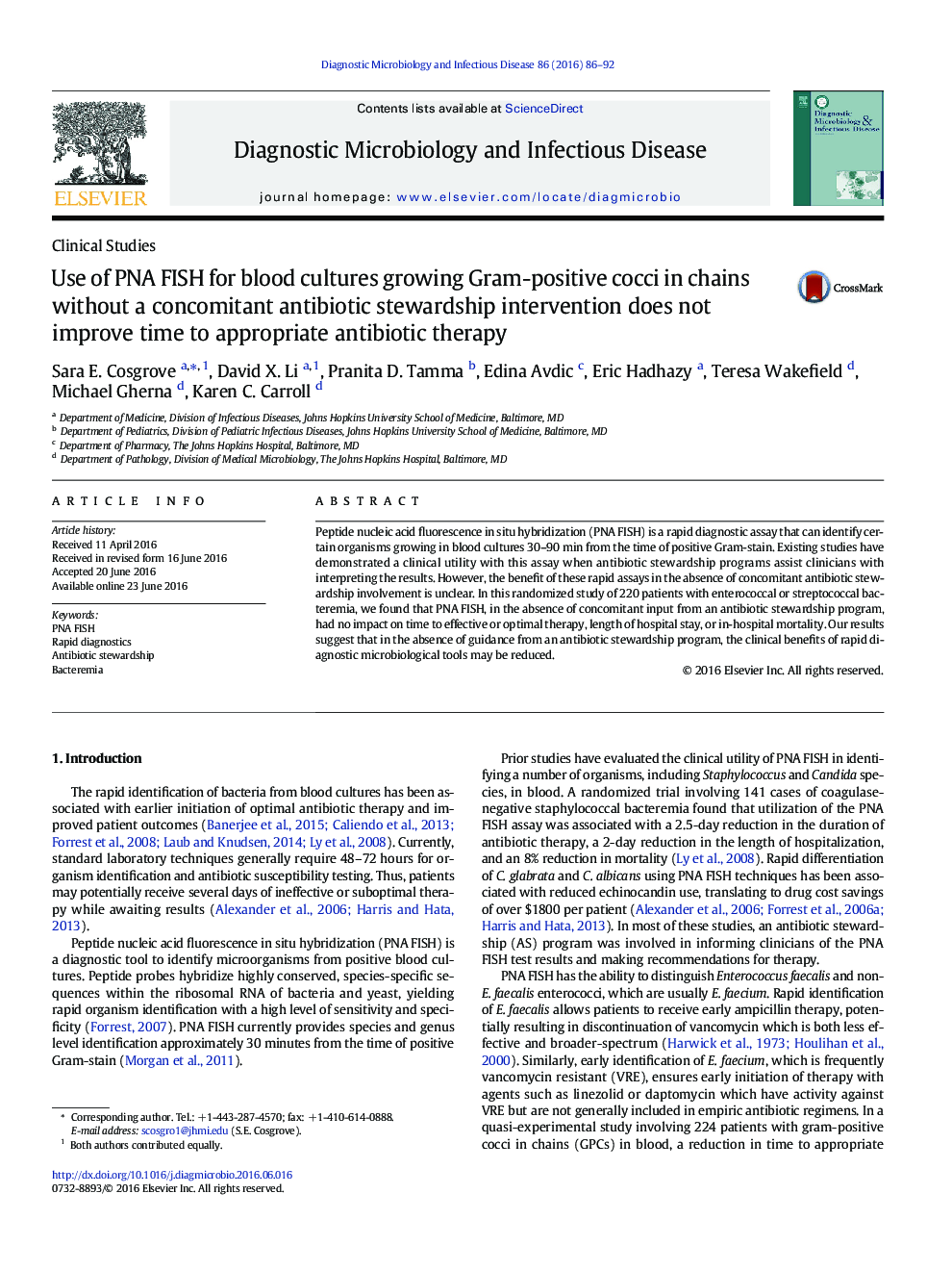| Article ID | Journal | Published Year | Pages | File Type |
|---|---|---|---|---|
| 3346798 | Diagnostic Microbiology and Infectious Disease | 2016 | 7 Pages |
•PNA FISH can rapidly identify Enterococcus species in blood cultures.•We randomized 220 patients with Gram-positive cocci in chains growing in blood.•Patients underwent either standard microbiological methods or standard plus PNA FISH.•There was no antibiotic stewardship (AS) input in either study arm.•PNA FISH without AS input did not impact time to therapy or patient outcomes.
Peptide nucleic acid fluorescence in situ hybridization (PNA FISH) is a rapid diagnostic assay that can identify certain organisms growing in blood cultures 30–90 min from the time of positive Gram-stain. Existing studies have demonstrated a clinical utility with this assay when antibiotic stewardship programs assist clinicians with interpreting the results. However, the benefit of these rapid assays in the absence of concomitant antibiotic stewardship involvement is unclear. In this randomized study of 220 patients with enterococcal or streptococcal bacteremia, we found that PNA FISH, in the absence of concomitant input from an antibiotic stewardship program, had no impact on time to effective or optimal therapy, length of hospital stay, or in-hospital mortality. Our results suggest that in the absence of guidance from an antibiotic stewardship program, the clinical benefits of rapid diagnostic microbiological tools may be reduced.
